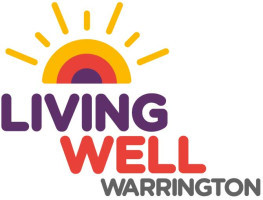What is Volunteering?
Volunteering can be rewarding and can give you a real sense of purpose. It can allow you to use existing skills and gain new ones.
Volunteering should be:
- Your choice
- The right fit for you and your lifestyle
- Mutually beneficial
Is volunteering right for me?
Volunteering is an investment of time and energy that benefits another person, a cause, an organisation and the community as a whole.
Volunteering is about taking responsibility and furthering an organisation’s mission. If you are looking to access volunteering for the very personal benefits of self-confidence or meeting people but without the responsibility of volunteering you could look into participation instead. This means you can take part in activities or hobbies and get those benefits without the pressure. Sometimes people think they want to volunteer when they need to participate. The two are very similar, one just comes with responsibility. There is nothing wrong with participation at all, it’s whatever is right for you at the time.
Still wanting to volunteer? Great! Keep reading.
As you start thinking about volunteering, here are some questions to ask yourself before you decide to volunteer:
- What's my main reason for thinking about volunteering?
- What would I enjoy/be really interested in?
- What would I really NOT want to do?
- What do I aim to gain out of this experience?
- How much time do I have for volunteering?
- What time of day do I want to volunteer?
- How long can I volunteer for? Short-term? Long-term?
There are no right or wrong answers to these questions, just be honest with your answers when you talk to the organisation you are thinking of helping. Most can and will work around you or help you see if they can accommodate you.
What do I need to think about?
- Mutually beneficial -Volunteering should be mutually beneficial, this means that both sides (volunteer and organisation) should get what they need from the volunteer’s involvement.
- Personal commitments - Mention anyone you care for (children, relatives, friends) and the appointments, school runs, and personal care duties you have to work around and ask if you can leave earlier or start later to work around that.
- Training - Some organisations provide / require some sort of training. When you start make sure you know what training is expected of you and what times it is on and if you can attend. Training can be on a wide range of subjects. This is a brilliant gift they give you but please think about if you are going to be there long enough to use it. It is very frustrating for an organisation to spend the time and money on training a volunteer and they leave as soon as they have it. Please think about and respect the training given and pay the organisation back with some time and service afterwards.
- Expenses - Due to financial challenges, an increasing number of organisations cannot pay expenses to volunteers. If this is something that might affect your ability to participate, check when you start.
- Driving whilst volunteering - If you are being asked to use your car as part of your volunteering role YOU will need to ensure that you insurance covers you doing this role. Your insurance company will be able to guide you through this but you may need to be insured for ‘business use’.
- Will volunteering affect my benefits? - If you are in receipt of any sort of benefits or payments, it is worth checking with who you get them from to see if your volunteering will affect them in any way.
- Equipment - The organisation should provide you will everything you will need to perform the tasks they are asking of you if it is a regular opportunity. For one-offs or specialist tasks (e.g. gardening or fixing things) it may be that you are expected to use your own tools or equipment. You should clarify who is responsible if anything were you happen to your equipment and then make a decision if you are willing to use it.
Volunteering advice for Young People
Volunteering is never mandatory, if you have a module or expectation that volunteering is part of your course or something school / college is demanding you to do, this is placement, not volunteering. Volunteering is something you do freely through choice in your own time.
Work experience or placements are arrangements made usually between organisations to host you to give you relevant experience. Volunteering is something you organise yourself with an organisation which is all part of the experience.
Things young people should think about:
Planning
It can take some time to get into volunteering, if you are planning to do something in a summer (for example), start thinking around 6 months before and arrange it in advance.
Initial enquiry
Part of the experience and recruitment process is you making the initial approach. It is always recommended that you make the initial calls or application yourself rather than a parent / carer or teacher doing it on your behalf. Making the call yourself is a great way to make a good first impression. Even if you are nervous, try it anyway. Groups will really appreciate hearing from you. If you don’t feel welcome or supported by them, then you know they are not a good fit for you.
Volunteering has limitations for everyone but your age may stand in your way. Insurance, tasks / roles, the people you would be supporting or the hours needed all stand in the way. Sometimes you won’t be able to get where you need to be immediately and might have to wait for a little while and do something else first. All experiences are useful somehow.
Choosing the right role for me
When choosing a role, know that there are few that match a course or occupation. This is where transferable skills and connected experiences come in. Think about what you need to be able to do or manage in the course or role you want to go into and find a volunteering position that gives you a chance to practise in advance.
Be honest with your motivations from the start, if you are using the volunteering to get experience, a reference or for an entry on your CV or application forms tell the organisation in advance. Most are more than happy to help you get what you need as you are giving them the help they need. It can be frustrating as an organisation if someone unexpectedly asks for a full reference or information for a CV and you have to find the time to try and meet their request.
Advice for Supporters
There are times where enquiries are made on behalf of a potential volunteer, this can be by professionals (youth or social workers) or family members (parents advocating for their children). The person being represented often has perceived or actual challenges which can make getting into volunteering tricky and previous experiences that make their volunteering journey ‘unique’.
If you are supporting someone and you think that volunteering is the next step in their journey, we have pulled together some things to think about.
Is volunteering the right fit?
It’s worth considering the levels of responsibility the person is ready to undertake. Often somebody will get a much more fulfilling experience from participating in an activity rather the taking a level of responsibility to lead the activity itself. Participation can be accessed generally by contacting the organisation and asking if they would like a ‘helper’. Participation is about being a ‘model’ attendee, reassuring others, volunteering to demonstrate or try something new, being open and friendly, it’s a whole skill in itself.
It is important to note at this point that volunteering is not a replacement for other services which mat have been lost due to funding etc. Volunteers are there to enhance services not to use them, this is where participation comes in. Volunteering is strongly about choice and there are questions and conversations about what level of commitment and focus the individual can offer.
If volunteering is the suitable next step, here are some things to consider:
- Is that person ready for the responsibility, dealing with authority, following orders or dealing with other volunteers/the public?
- Do they have the confidence to travel there and fulfil the role?
- Will they need support and if so, who will support them? Most organisations cannot provide deep levels of support to a volunteer as they are running the service at the same time. It may be that someone from your organisation needs to support them through the experience, particularly in the early stages.
Making the ask
Sometimes potential volunteers are hesitant to disclose their previous experiences or circumstances that have the potential to become a barrier to their volunteering. An organisation wouldn’t be offended if you started the journey but explained why and what the issues were, you can then make a smooth transition to the potential volunteer speaking to the group. More ideally, coach the potential volunteer on how they might discuss their journey with organisations.
It would be positive for all parties that the transaction between the volunteer and co-ordinator is as frank as possible and the truest picture of a volunteer’s history can help arm the coordinator make any adjustments needed to welcome the new volunteer to the team.
Managing expectations
For various reasons, sometimes it is necessary to manage the expectations of a potential volunteer. There is a chance their mission cannot be met by volunteering and sometimes it is about thinking differently about the route and considering what transferable skills can be gained from an opportunity and to reassure them of a constructive route.
In the case of those who are trying to perform something beyond their ability, honesty is the best policy. Having honest and realistic conversations about volunteering can help set a clear and reasonable expectations for both the volunteer and the organisation.
As an example, it is difficult to get direct experience of something like midwifery. But, attending a group for parents and children allow you to meet with mothers and hear their stories. Seeing the role through the eyes of the person you are supporting can be greatly advantageous. Therefore, think about the end goal and the viewpoints you need to hear or the things you need to learn about yourself to do it.

